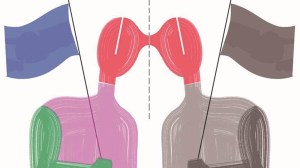Delhi HC ponders if CAG reports can be made public before tabling in the House; say such a step ‘may violate Constitution’
The Delhi High Court has kept the matter for consideration next on February 3.
 The court also mulled that directing to make Comptroller and Auditor General (CAG) reports public before their tabling may violate Article 151 of the Constitution. (Express Photo)
The court also mulled that directing to make Comptroller and Auditor General (CAG) reports public before their tabling may violate Article 151 of the Constitution. (Express Photo)The Delhi High Court Friday orally enquired that unless CAG reports are tabled, how can they be brought out in the public domain with a court direction.
The court also mulled that directing to make Comptroller and Auditor General (CAG) reports public before their tabling may violate Article 151 of the Constitution.
Article 151 prescribes the powers of the President and the Governor/ Lieutenant Governor for tabling audit reports in Parliament and Assembly, respectively.
The division bench of Chief Justice D K Upadhyaya and Justice Tushar Rao Gedela made the observation while dealing with a public interest litigation by one retired civil servant Brij Mohan seeking the court’s directions to make public 14 audit reports of CAG on the Delhi Government’s functioning.
CJ Upadhyaya orally enquired from the petitioner’s counsel senior advocate Geeta Luthra as to under what provisions of law she was pressing for the petition.
After she responded that she was relying on the “fundamental right to know, as a citizen, as a voter,” which flows from Article 19, CJ Upadhyaya orally remarked, “These generalised arguments will not do… we are dealing with reports prepared by a constitutional body, we have to be conscious.”
CJ Upadhyaya pointed out, “Article 151 (of the Constitution) does not say that reports once placed before the house, whether they shall be made public or not… they have provided in some circular/manual that they can be made public once it has been laid. Since you’re saying circulars are not sacrosanct we want to know under what provision (you are seeking the direction in the PIL)… Unless we comply with Article 151, how can it be brought out in the public domain… we want to know on what premise is your prayer based… Article 19 is subject to certain limitations… and right to know is a statutory right flowing from Right to Information Act… you have to establish that there is a public duty on the authority… where’s that authority?… Public has a right to know but not in violation of any constitutional provision… if your prayer is granted, Article 151 will be violated… we are just trying to understand the whole gamut in which you’ve filed the petition.”
Justice Gedela, too, orally remarked, “It has to fall within RTI Act, for that it has to be information first… we don’t think it is information before (being tabled in the house).”
The petitioner, Mohan, who retired as a Senior Administrative Grade (SAG) officer in 2013 from the Indian Audit & Accounts Department (IA&AD), has submitted that the 14 CAG reports “should be made public urgently and they should be discussed and debated before Delhi goes to polls before Vidhan Sabha elections are held.” Mohan, in his PIL, has also contended that the PIL is filed for the “benefit of the voters in Delhi”, as they “must be aware of the state of affairs in Delhi and financial health of Delhi before they cast their votes in the forthcoming elections in Delhi.”
CJ Upadhyaya further enquired from Luthra, “Why do you want this info before elections? Are you interested in knowing the information for the purpose of choosing the government?”
Luthra responded in the affirmative, to which CJ Upadhyaya responded orally, “Sorry. You should be concerned with the information contained in the report, you should be concerned with the report… we ourselves feel that it is very important… but (we are) confronted by constitutional provision… it is a constitutional requirement (to table the report)… You’re before a court of law, your arguments should be legal.”
The court has kept the matter for consideration next on February 3.
Polling for all 70 Assembly seats in Delhi will be held on February 5 and the results counted on February 8.







